UP: Taj Mahal engulfed in thick haze as pollution rises in Agra, pics surface online
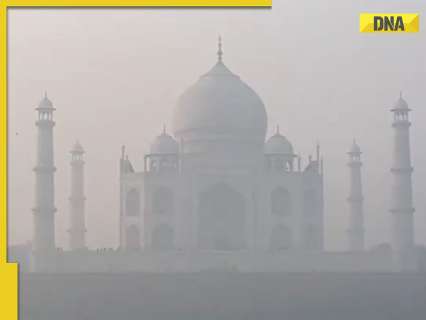
According to a visitor at the Taj Mahal, the situation in the area has worsened over the years due to the industrial areas traffic increasing.
Mumbai engulfed in layer of smoke as AQI dips to ‘poor’ ahead of Diwali festival
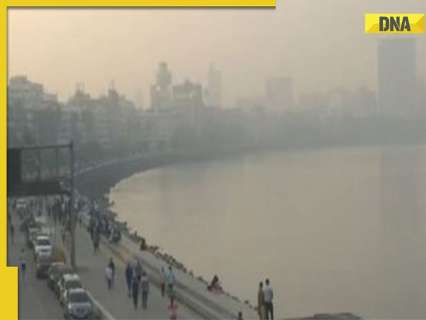
In areas such as Byculla, Chembur, Chhatrapati Shivaji Intl. Airport, Deonar, Ghatkopar, and Kandivali West, AQI was also recorded in the ‘moderate’ category.
THIS Indian state recorded highest number of stubble-burning cases, it’s not Punjab, Haryana
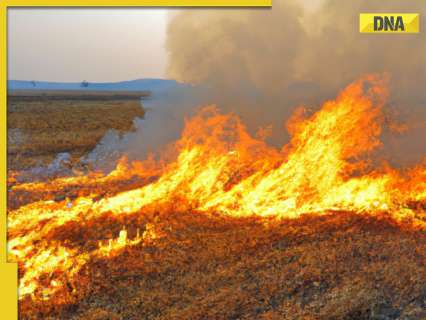
The Centre on Saturday urged states to strengthen implementation of existing micro-level action plans for crop residue management, as authorities race to prevent the annual air quality crisis in Delhi.
‘I’m thankful…’: Swara Bhaskar’s husband Fahad Ahmad joins NCP-SCP, to contest Maharashtra assembly polls from…

Samajwadi Party leader and actor Swara Bhaskar’s husband Fahad Ahmad joined the Nationalist Congress Party (Sharad Chandra Pawar).
UP: 10 hotels in Lucknow receive bomb threats via email, sender demands Rs 46 lakh ransom
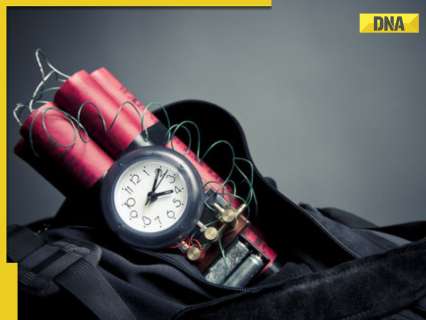
The sender also demanded a ransom of $55,000 (Rs 4,624,288) and threatened that an explosion would occur if the demand was not met.
Ghaziabad to Kanpur in 5 hours? 380 km expressway to connect 9 UP districts, will be completed by…
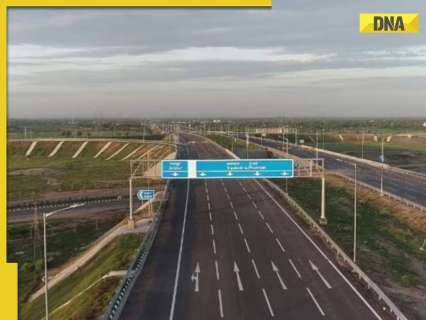
The 380 km long Greenfield Expressway is being constructed from Ghaziabad to Kanpur
‘Atmosphere of fear…’: PM Modi warns against ‘digital arrest’ scam, suggests ways to deal with ‘fraudsters’
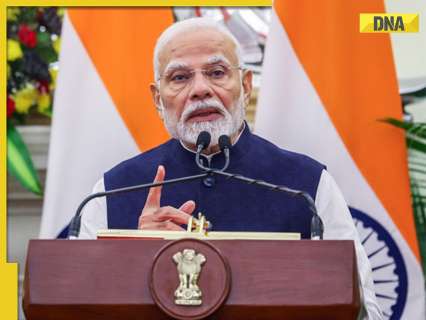
In his ‘Mann ki Baat’ broadcast, Modi said probe agencies are working with states to deal with the issue but added that awareness is essential in protecting oneself from this crime.
Dems need to ramp up early voting efforts to match GOP momentum in North Carolina: analyst
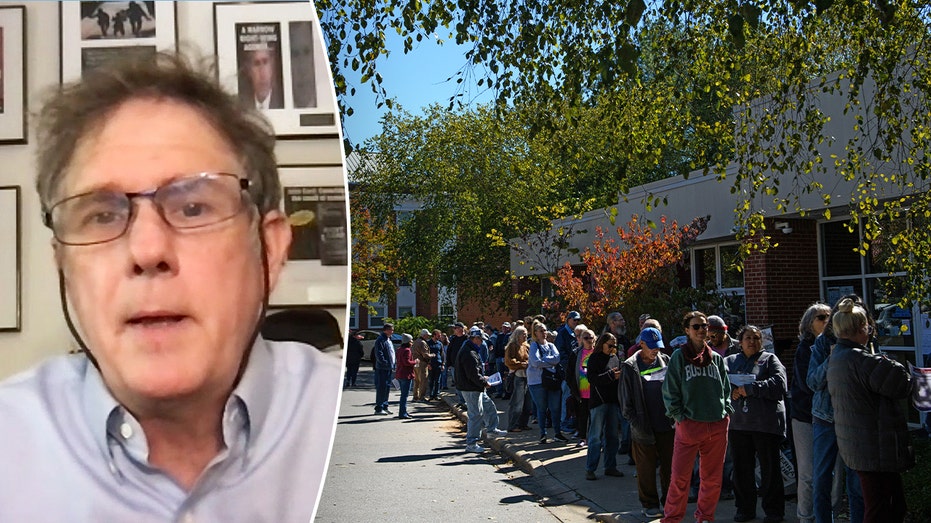
The Democratic Party needs to get competitive with Republicans in battleground North Carolina to turn out more voters before Election Day, says a former political consultant from the Tar Heel State. Thomas Mills is publisher and founder of PoliticsNC, a website described as “Analysis, commentary, and opinion of North Carolina and national politics from the perspective of a center-left, 30-year veteran of the campaign battlefield.” Mills, who worked on the direct mail team for the Democratic National Committee in 2004, identified two problems that Democrats need to address, quickly, to compete in the state: early voting and low African American voter turnout. “They [Republicans] seem to be on the right track right now. Democrats, on the other hand, need to boost their turnout. I mean, what we don’t know is how people are voting,” Mills told Fox News Digital in an exclusive interview. “Some of these Republicans that are going to the polls may not actually be voting for Republicans. So, until we count the votes, we don’t know a whole lot.” Mills said that this cycle, Republicans are voting at “levels much higher than they have in the past.” NORTH CAROLINA VOTERS WILL DECIDE ON AMENDMENT TO EXPLICITLY BAR NONCITIZENS FROM VOTING IN ELECTIONS “The big question is, ‘What is driving the GOTV vote this cycle?’ They [Republicans] historically have not put any emphasis in North Carolina on early voting. In fact, in 2020, they actually told Republicans not to vote early, to vote on Election Day,” Mill said. “This year, they’ve taken a different tack. And they’re actively telling Republicans to go vote early.” Mills added that Republicans appear to be leading in early voting, which started on Oct. 17, but that until every ballot is counted, the parties won’t know whether these early votes represent any new voters. “Right now, they have more votes than Democrats,” he added. “The question is, are these voters that would have been voting on Election Day that are voting early, or are there new voters in the group that they’re hoping are going to push their margins up?” Early voting gives operatives the opportunity to go after less frequent voters, but North Carolina is not seeing a ton of new voters coming into the electorate this cycle, Mills said. BALANCE OF POWER: HELENE COULD SHIFT POLITICAL WINDS TOWARD TRUMP, NORTH CAROLINA, LAWMAKERS SAY The other key issue that could “hurt” Democrats in the battleground state, according to Mills, is low turnout among Black voters, a key voting bloc among Democrats. “Historically, African-Americans have been a pretty major part of the Democratic coalition, and they make up somewhere around 20% of the overall vote, and they vote at roughly 90% for Democrats. And what I saw when I was looking, comparing early votes from 2020 to 2024, is, a few days ago, they were down by about 67,000 votes or so from 2020, which four days into the early vote is not a catastrophe, because there’s going to be probably more than a million African Americans voting.” According to Mills, African Americans do not appear to be changing their voting behaviors, but there is rather a “depressed turnout” among the demographic. “If Democrats want to get them in the polls, they need to start trying to figure out what those are and getting them to go vote,” he said. “They have time to fix it, but they do need to figure out what the issue is, where the problems are and increase turnout.” Hurricane Helene recently made a deadly sweep across the southeast, impacting several counties in North Carolina ahead as the state was preparing for early voting to begin. Mill said he believes the event will have some effect on voter turnout, but that it won’t hurt either party. “I think when you have a natural disaster like that, it does affect turnout some because of accessibility, but more because people have either left the area because they don’t have water, they don’t have power, or they’re just too concerned with trying to take care of basic needs,” he said. “They’re not thinking about voting.”
Russia-Ukraine war: List of key events, day 975
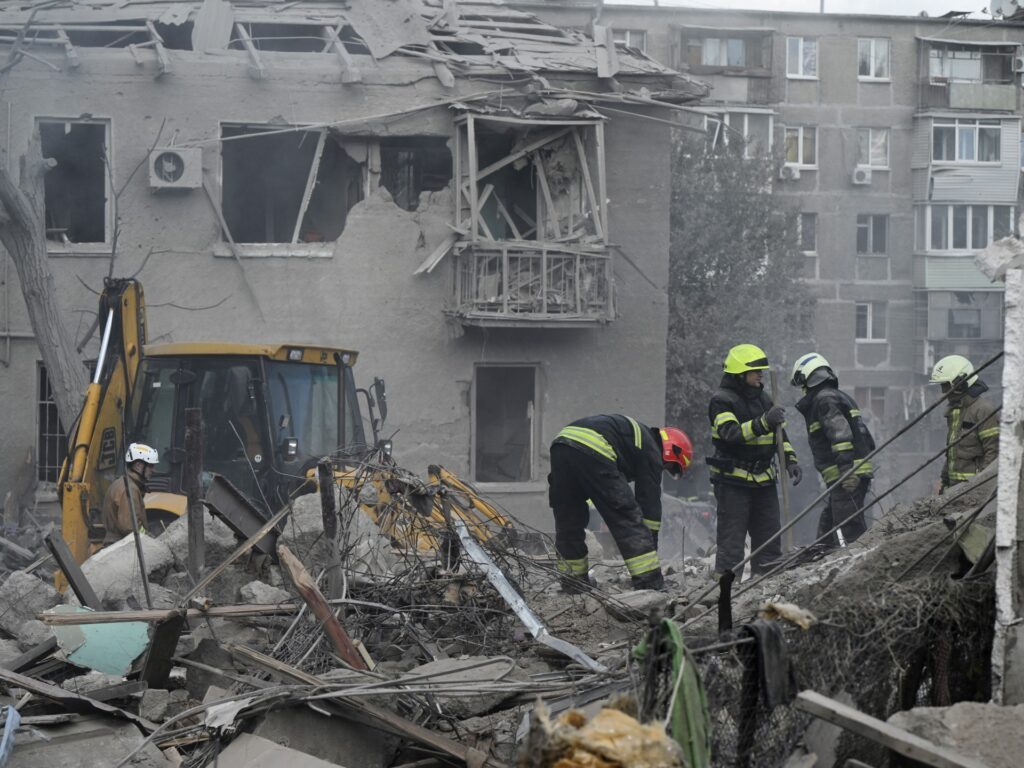
As the war enters its 975th day, these are the main developments. Here is the situation on Sunday, October 27, 2024: Fighting Ukraine’s air defence units were deployed early on Sunday to repel a wave of Russian drones heading towards Kyiv, Vitali Klitschko, the mayor of the Ukrainian capital, said, telling residents to stay in shelters. Russia’s Ministry of Defence said its air defence units also destroyed overnight at least 30 Ukrainian drones over the southern regions of Voronezh, Bryansk, Oryol, Lipetsk and Belgorod. One woman was injured as a result of the drone attack on the border region of Belgorod, the region’s governor, Vyacheslav Gladkov, said on the Telegram messaging app. He added that a few cars were also damaged. Maxim Yegorov, governor of the Tambov region, some 450km (280 miles) southeast of Moscow, said a Ukrainian drone fell in the Michurinsky district of the region, sparking a short-lived fire but causing no injuries or material damage. Russian forces advanced further into several eastern Ukrainian towns, including in Selydove, getting closer to capturing the strategic city of Pokrovsk, Russian and Ukrainian bloggers said. The Russian news outlet SHOT said on Telegram that Russian troops control 80 percent of Selydove. Russian military bloggers also reported that Russian forces were close to taking over the town of Kurakhove southwest of Hirnyk. Russia’s Defence Ministry said its forces had taken control of the Oleksandropil settlement in eastern Ukraine, according to the state-run news agency RIA Novosti. Ukraine said in its Saturday evening report that its forces had repelled 36 Russian attacks along the Pokrovsk front line the previous day, including in the area of Selydove, while several battles were still ongoing. A Russian glide bomb killed one person and injured three in Kostiantynivka near the front line in Donetsk region, the regional governor said. Russian shelling killed two people in a small town west of the Ukrainian-held southern city of Kherson. Politics and diplomacy A string of Russian attacks that killed and injured civilians in Ukraine in recent days has prompted President Volodymyr Zelenskyy to issue a new call to Kyiv’s allies to intensify political pressure on Moscow. Finance ministers of the Group of Seven nations have decided to step up efforts to prevent Russia from evading sanctions imposed after its invasion of Ukraine amid reports that Russian financial institutions have developed a network of foreign subsidiaries to facilitate the trade of sanctioned goods. The deployment of North Korean troops to help Russia in its war against Ukraine is unlikely to have a significant effect on the fighting on the ground but could affect security interests in Asia, Europe and elsewhere, said Pascal Dayez-Burgeon, a North Korea expert and former French diplomat in Seoul. Adblock test (Why?)
Japan’s ruling party likely to lose parliamentary majority in snap election
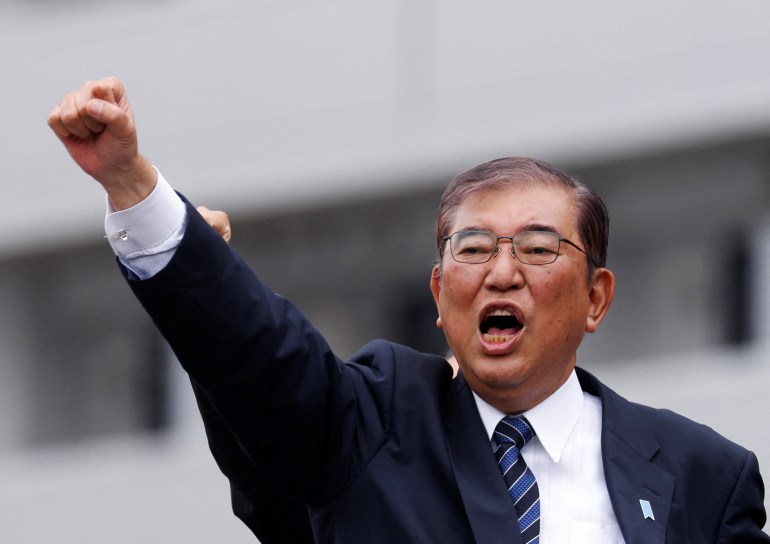
While voters are weighing the ruling party’s funding scandals and the stagnant economy, they are also sceptical about the opposition’s ability and experience. Japan is voting in its tightest election in years, with new Prime Minister Shigeru Ishiba and his Liberal Democratic Party (LDP) facing potentially their worst result since 2009 over a funding scandal and inflation. The LDP and its longtime partner Komeito are likely to lose their comfortable majority in the lower house of parliament in Sunday’s election, opinion polls suggest. A record 314 women among a total of 1,344 candidates are running for office. Polls close at 8pm (11:00 GMT), with early results expected within hours. Ishiba, 67, took office on October 1, replacing his predecessor Fumio Kishida who resigned after an outcry over slush fund practices among LDP legislators. Ishiba immediately announced a snap election in hopes of shoring up more support. Ishiba gestures during a campaign event in Tokyo [Manami Yamada/Reuters] But the LDP is facing potentially its worst result since 2009 – possibly leading Japan into political uncertainty, though a change of government was unexpected. Ishiba has set a goal of retaining 233 seats for the ruling coalition between the LDP and its Buddhist-backed junior partner Komeito, a majority in the 465-member lower house, the more powerful of Japan’s two-chamber parliament. In his final campaign speeches on Saturday, Ishiba apologised for his party’s mishandling of funds and pledged “to restart as an equal, fair, humble and honest party”. He said only the LDP’s ruling coalition can run Japan with its experience and dependable policies. But voters in the world’s fourth-largest economy have been rankled by rising prices and the fallout from a party slush fund scandal that helped sink previous premier Fumio Kishida. “I made my decision first and foremost by looking at their economic policies and measures to ease inflation,” Tokyo voter Yoshihiro Uchida, 48, told AFP on Sunday. “I voted for people who are likely to make our lives better.” The 101-year-old Utako Kanayama casts her ballot at a polling station in Tokyo [Kim Kyung-Hoon/Reuters] Japan’s biggest opposition party, the Constitutional Democratic Party of Japan (CDP), meanwhile, is expected to make significant gains. Its centrist leader, former Prime Minister Yoshihiko Noda, said Sunday’s election is a rare chance for a change of government. Local media speculated that Ishiba could potentially even resign immediately to take responsibility, becoming Japan’s shortest-serving prime minister in the post-war period. The current record is held by Naruhiko Higashikuni who served for 54 days – four days more than British leader Liz Truss in 2022 – just after Japan’s 1945 defeat in World War II. “The LDP’s politics is all about quickly implementing policies for those who give them loads of cash,” 67-year-old Noda told his supporters on Saturday. “But those in vulnerable positions… have been ignored,” he added, accusing the government of offering insufficient support for survivors of an earthquake in central Japan. A woman accompanying her children in Halloween costume casts her ballot [Kim Kyung-Hoon/Reuters] Analysts suggest Ishiba could fall short of reaching his target, though his LDP was expected to remain the top party in Japan’s parliament as voters are sceptical about the opposition’s ability and experience. Ishiba’s party is also being tested to break the legacy of the late Premier Shinzo Abe. Abe’s policies focused on security, trade and industry but largely ignored equality and diversity, and his nearly eight-year tenure led to the corruption, experts say. “The public’s criticisms against the slush funds scandal has intensified, and it won’t go away easily,” said Izuru Makihara, a University of Tokyo professor of politics and public policy. “There is a growing sense of fairness and people are rejecting privileges for politicians.” Adblock test (Why?)
